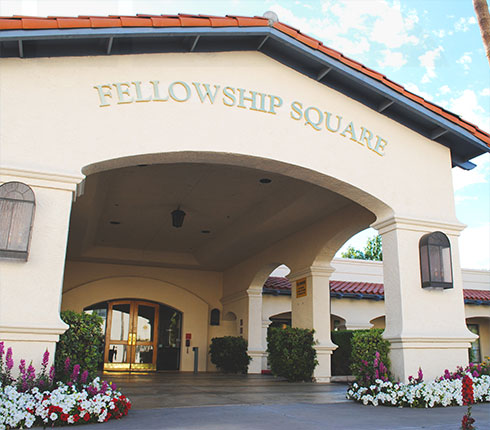How to Prevent Vision Loss and Low Vision with Age in Honor of Age-Related Macular Degeneration Month

February is designated as a month to recognize many important things — is known as Black History Month, American Heart Month, and within its 28 days are Groundhog Day, Valentine’s Day, Presidents Day, the Chinese New Year, Fat Tuesday, and Ash Wednesday.
It’s also recognized as Age-Related Macular Degeneration Month, a time dedicated to bringing awareness to the important health topic of eyesight health and educating people about how they can prevent age-related vision loss and low vision.
Fellowship Square takes a peek into this topic and sheds some light on how seniors can care for their vision as they age.
According to the Center for Sight, age-related macular degeneration (AMD) is “the deterioration of the eye’s macula and is a disease associated with aging.” It is the leading cause of blindness in the U.S. Because it affects central vision, it can poorly impact seniors’ ability to do everyday activities such as driving, reading, and even recognizing faces. Those at risk for developing AMD include people over age 50, smokers, Caucasians with lighter eyes, those with a family history of AMD, and people who are obese or have high blood pressure. The BrightFocus Foundation also lists gender (females are more susceptible), prolonged sun exposure, and poor diet as possible risk factors.
AMD causes dramatic vision loss, but generally before this happens patients report slightly blurred vision or other changes in vision such as the inability to see dim light, seeing spots, or partial vision loss. AMD is definable under two categories — dry, the most common form of the disease, and wet. The good news is that AMD is treatable. Early detection is key, however, particularly for those 60 years and older. Treatment for dry AMD can include a prescription of zinc and antioxidants designed to slow the progression of the disease. Treatment for wet AMD is much less common, according to the Center for Sight, but “can include a number of options, including intravitreal injections that inhibit the growth of the abnormal blood cells that cause wet AMD.”
In order to protect the longevity and quality of their visions, seniors can take the advice of the BrightFocus Foundation including:
• Maintain a healthy weight
• Eat a nutritious diet including leafy green vegetables, yellow and orange fruits, fish, and whole grains
• Refrain from or quit smoking
• Maintain healthy normal blood pressure and control other medical conditions (with doctor’s recommendation)
• Exercise regularly
• Wear sunglasses and hats when outdoors to protect eyes from the sun
• Get regular eye exams
• Consult an eye doctor right away if vision changes occur
Vision is precious at any age! Fellowship Square encourages seniors to care for their eyesight as they would any other part of their body for health and longevity.

